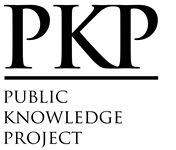Implicit Evaluation Mechanisms in Marketing Research: an Overview of Formation and Measurement of Implicit Attitude
Abstract
For a long time, examining the subtle and unintended effects of people's social environments on their thoughts and behaviors has been a central goal of social psychology researchers. Advances in social psychology have proven the importance of studying not only the conscious mechanisms of humans but also the "implicit" and "automatic" ones. Researchers in social psychology distinguish explicit attitudes, evaluations resulting from an introspective effort, from implicit attitudes, automatic evaluations of which the individual may not be aware. Cognitive psychology researchers have already proven that implicit beliefs are much more important in decision-making than explicit beliefs even in what might be considered rational and/or scientific realms. Greenwald and Banaji (1995) introduced the term implicit social cognition to describe cognitive processes that occur outside of human consciousness. Implicit social cognitions were initially applied to psychology, but they are beginning to be introduced in other disciplines, notably in marketing. This article aims to provide a conceptual framework of the implicit attitude and its measurement tools through a multidisciplinary theoretical exploration. Therefore, the research method used in this paper is the analysis of the classic literature. This paper summarizes the arguments and counterarguments within the scientific discussion on the issue of implicit mechanisms in the marketing field. This review theoretically proves that the study of implicit social cognitions is a field of research with many challenges, particularly related to consumer behavior analysis because it allows marketers to understand influences unknown to the subject himself.
Full Text:
PDFDOI: https://doi.org/10.5296/jsss.v10i1.20680
Refbacks
- There are currently no refbacks.
Copyright (c) 2023 Ikrame Masrhouni

This work is licensed under a Creative Commons Attribution 4.0 International License.
Journal of Social Science Studies ISSN 2329-9150
Copyright © Macrothink Institute
To make sure that you can receive messages from us, please add the 'macrothink.org' domain to your e-mail 'safe list'. If you do not receive e-mail in your 'inbox', check your 'bulk mail' or 'junk mail' folders. If you have any questions, please contact: jsss@macrothink.org
-----------------------------------------------------------------------------
